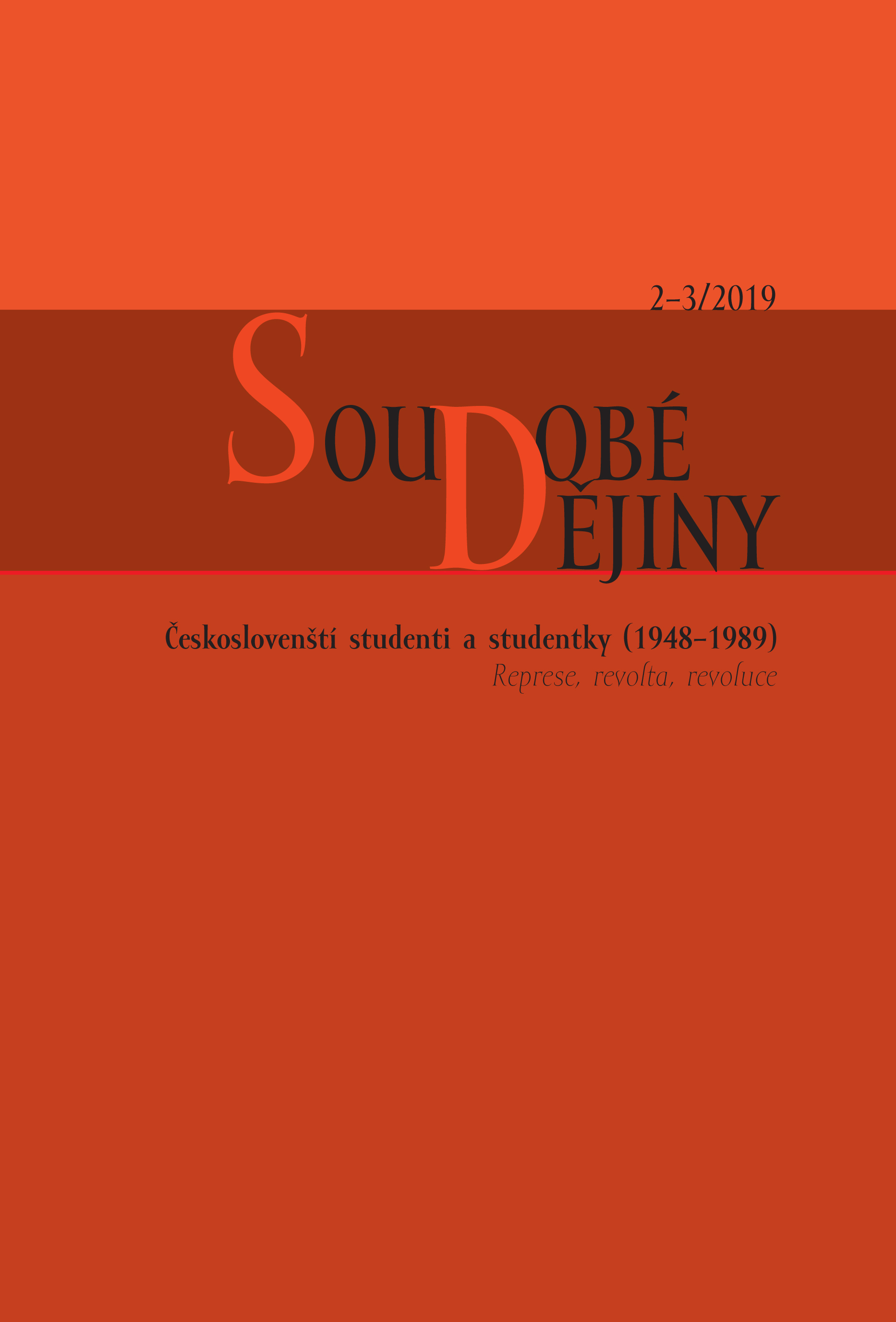Politika ulice
Politics of the street
Students’ demonstrations in Prague during the 1960s and the disintegration of structures of the Czechoslovak Union of Youth at universities
Author(s): Michael PolákSubject(s): History, Political history, Social history, Recent History (1900 till today), Special Historiographies:, Post-War period (1950 - 1989), History of Communism
Published by: AV ČR - Akademie věd České republiky - Ústav pro soudobé dějiny
Keywords: Czech students; social movements; politics of the street; Czechoslovak Union of Youth
Summary/Abstract: In the end of October 1967, a spontaneous demonstrations of students protesting against poor living conditions in Prague’s Strahov Dormitory, was quashed with force. The author asks a question why something seemingly as trivial as a power blackout in a student dormitory resulted, at the end of the day, in the disintegration of structures of the Czechoslovak Union of Youth at universities. In doing so,he follows the grammar of the social conflict through a prism of social movement formation and of the so-called politics of the street.The author describes a shift in the attitude of the Communist Party of Czechoslovakia toward students in the 1960s, as the latter started assigning greater importance to intelligentsia than before, embarking upon the so-called policy of trust toward students, its aim being to make them more involved in solutions of university and social problems. The author also notes a step-by-step emancipation of students and the emergence of an idea of self-governing students’ bodies, independent on official structures which were criticized as non-functional. In this respect, the author analyses conflicts with security forces during youth and students’ festivities in Prague (such as May Day gatherings in the Petřín Park and later during Majáles (“Coming of May festivities”) processions, ultimately ending in punishments of students labelled as “rioters”. He states that the confrontations taught students to adopt strategies helping them avoid repressions (such as avoiding any “disorderly conduct”, not criticizing the ruling party and the Soviet Union directly, having their own stewards to maintain order); on the other hand, the security machine learnt to respect the students’ authority and to behave with restraint. The result was a consensus on how to manage the social conflict and keep it non-violent. The tacit agreement of university students, police, and leaders of the Czechoslovak Union of Youth collapsed when policemen intervened with force against an unplanned and peaceful demonstration of students from the Strahov Dormitory, who had long been trying in vain to resolve their accommodation problems. After two months of investigations, none of the protesters or the intervening policemen were punished; however, requirements of students, such as the right to similar protests or inviolability of the academic soil, were not granted as well. Students blamed the leadership of the Czechoslovak Union of Youth for the unsatisfactory outcome, and started to leave its structures en masse. In 1968, they founded their own self-governing organization, independent on both the Communist Party of Czechoslovakia and the Czechoslovak Union of Youth.
Journal: Soudobé Dějiny
- Issue Year: XXVI/2019
- Issue No: 2+3
- Page Range: 227-256
- Page Count: 30
- Language: Czech

